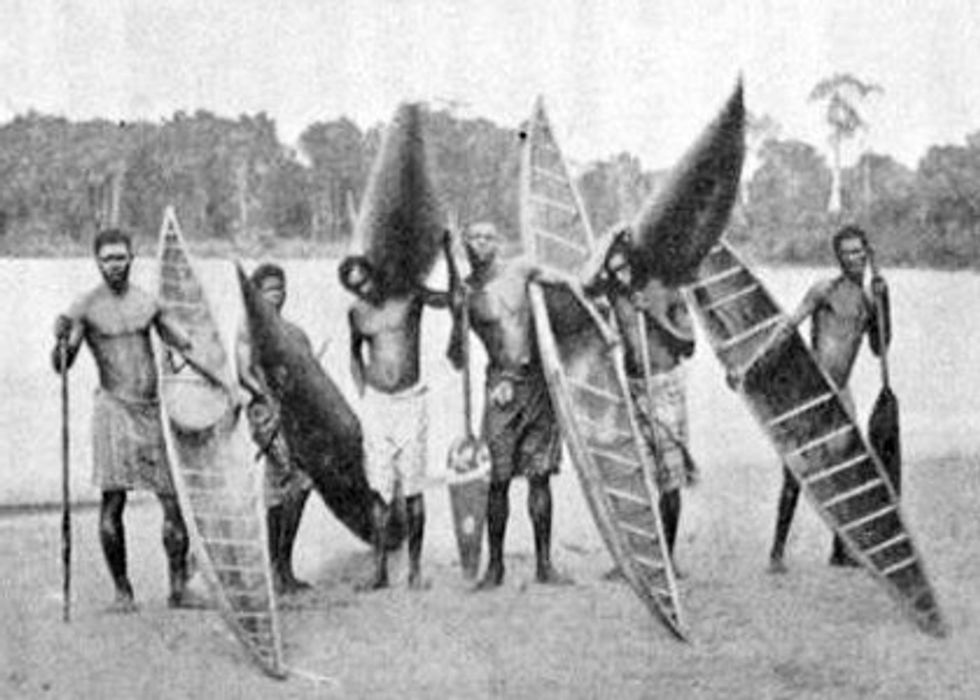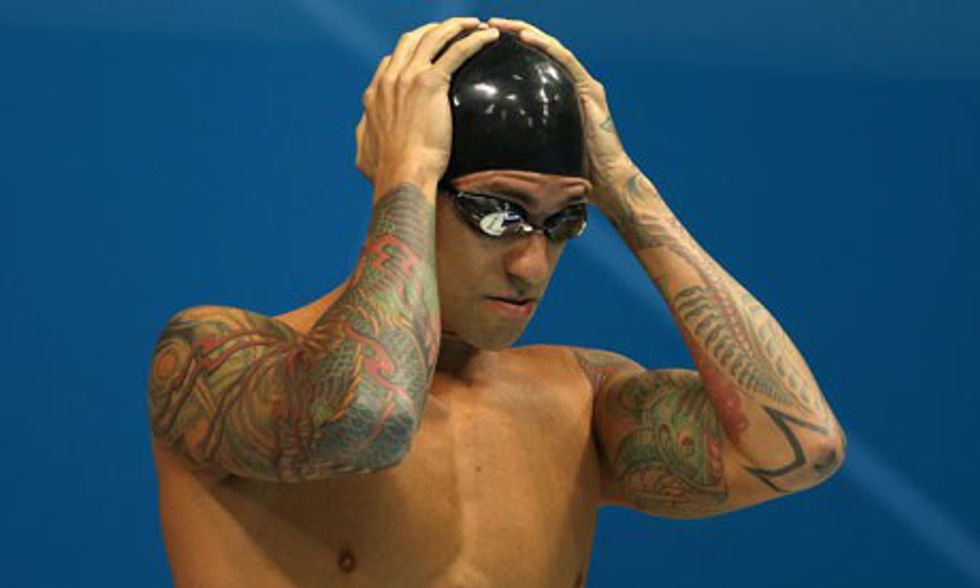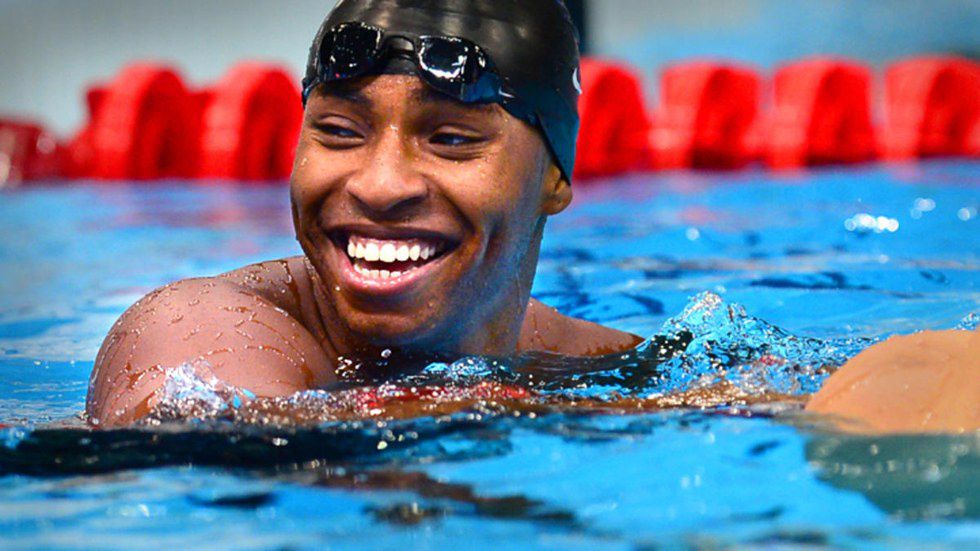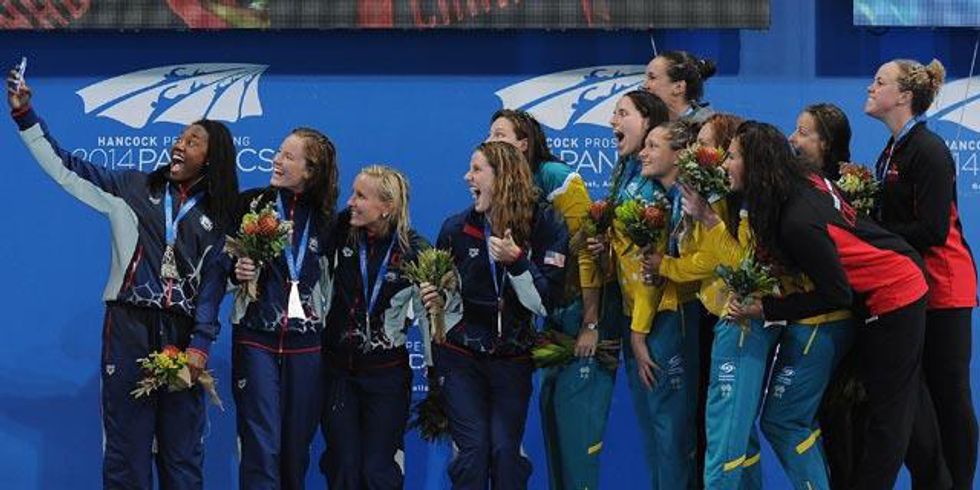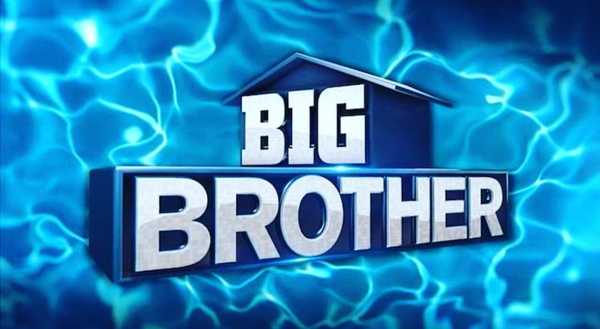I hate hearing people say, “They’re black. They can’t swim.” Even more, I hate the offensive, racist reasons given as to why “black people can’t swim.” There are pseudoscientific theories thrown around that say black people are unable to float, that their musculature is too heavy or something about body fat percentage and buoyancy. I hate that people believe these ignorant statements. I hate that people speak without knowing the truth. What I hate most is that it’s true that 70 percent of African-American children cannot swim. But that wasn’t always the case.
Historically...
In the 15th century, European explorers documented the aquatic skills of West Africans.
“Not only were West Africans swimming, but they were using a type of crawl stroke that wasn’t adopted by Europeans until the very end of the 19th century," according to Dr. Phillip Whitten.
The Greeks and Romans were also reportedly strong swimmers, in contrast to the Europeans at the time, who had virtually no swimming skills. Stories of the Loch Ness Monster deterred most Europeans from swimming, or even being near water.
Fast forward a few years (give or take a hundred) when slaves were first taken from West Africa to America. These slaves didn’t have much to their name, but they still had their swimming skills. In fact, there are countless stories of slaves saving their drowning masters. Furthermore, swimming was a pastime for the early slaves, as they would spend their free time near lakes and creeks. Because they were known for being such strong swimmers, some slaves were even sent to the Caribbean to be pearl divers, to enter the profitable business of, you know, diving for pearls.
But of course this did not last long. Slave owners got the idea that swimming could be a means of escape for their slaves, and they didn’t like that their swimming slaves were stronger than their non-swimming selves.
Read this quick little story:
“The Underground Railroad got its name when a slave named Tice Davids escaped from Kentucky in 1831 and swam across the Ohio River to freedom in Ripley, Ohio. According to legend, Davids’ owner was chasing Davids in a boat when he lost sight of his swimming slave. Thinking Davids must have drowned, he remarked to his companions with a sarcastic smirk that his slave must have taken an 'underground railroad.'"
So slave owners began to punish slaves by having public drownings. They also prevented slaves from teaching their children how to swim.
As the number of African-American swimmers decreased, the popularity of swimming increased amongst white Americans and Europeans. Swimming was first incorporated in the Olympics in 1896, and the early 20th century saw a boom in public swimming pools. Ironically, 1896 was the same year that Plessy v. Ferguson declared that facilities had to be “separate but equal.” While the sport of swimming, a core of the past West African culture, was glorified around the world, the Africans themselves were denied access to community pools, discovering that separate but equal is not equal.
With no community pools to turn to, African-Americans turned to unsafe swimming holes, where there was a large increase in the number of drowning tragedies. Already long separated from their roots of swimming, most African-Americans attempted to protect their children by keeping them out of water altogether. This unintentionally increased their drowning risk.
Today, it’s true that 70 percent of African-American children cannot swim. What's more, USA Swimming also found that if a parent does not know how to swim, there is only a 13 percent chance that the child in the household will learn how to swim. You can see how this creates a vicious cycle.
There is this belief that swimming is a white sport. Only 3 percent of USA Swimming members are African-American, and in 2012, only three of the 47 members of the US Olympic team were African-American.
But this recent development is the start of something to be proud of. Anthony Ervin was the first African American to make the United States Olympic team in 2000. With a new presence of African-American role models in swimming, the participation of African-American swimmers has slowly begun to increase.
In 2006, Cullen Jones became the first African-American man to break a world record in swimming. He then went on to become the second African-American to win an Olympic gold medal as a part of the 4 X 100 freestyle relay team in Beijing.
At the 2015 NCAA Woman’s Division I Championships, Simone Manuel, Lia Neal and Natalie Hinds, three African-American females, swept the 100-yard freestyle event, taking the top three places. Manuel set a new NCAA record with a time of 46.09.
The participation of African-American swimmers is slowly increasing, and USA Swimming released an African-American Cultural Inclusion Resource Guide to help improve diversity in swimming. This handbook is the first of a series that will include similar handbooks focused on Hispanic/Latino, LGBTQ, Asian-American and Native American communities. USA Swimming aims to build underrepresented communities and move away from the “white sport” mentality.
But there's still the fact that 70 percent of African-American children still cannot swim. This is a problem that must be addressed. Cullen Jones is an ambassador for the USA Swimming’s Make A Splash Foundation, which actively seeks to involve children in swim lessons.
There needs to be a push for water safety at a young age to prevent water tragedies, and this can start with debunking stereotypes. We need to break the cycle of “blacks can’t swim.” We need to change the fact that only 30 percent of African-American children will learn how to swim. We need to stop making generalizations against entire groups of people, especially when we don’t know the whole story.
Which leaves us with this: What other stereotypes do we believe without knowing the whole truth?




